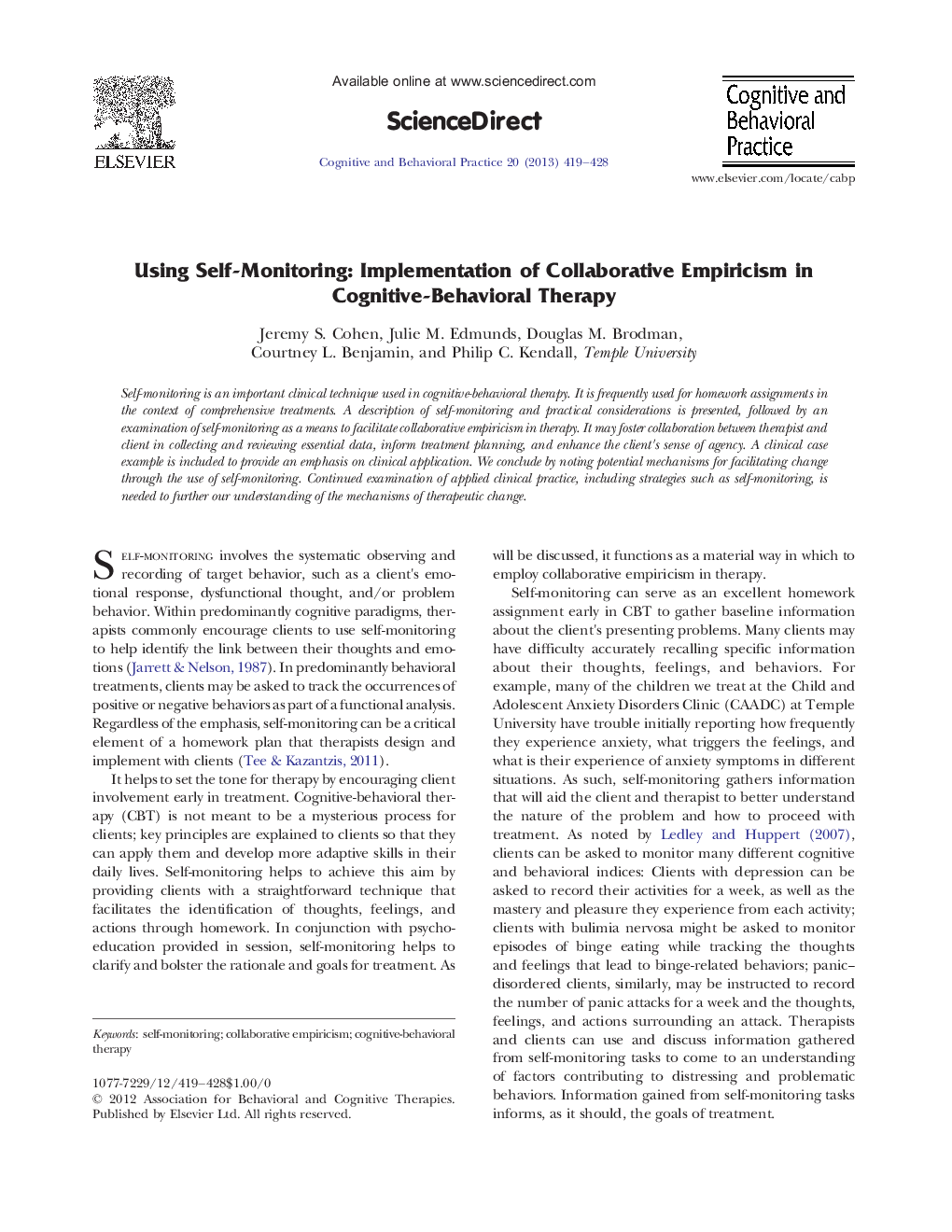| Article ID | Journal | Published Year | Pages | File Type |
|---|---|---|---|---|
| 904299 | Cognitive and Behavioral Practice | 2013 | 10 Pages |
Self-monitoring is an important clinical technique used in cognitive-behavioral therapy. It is frequently used for homework assignments in the context of comprehensive treatments. A description of self-monitoring and practical considerations is presented, followed by an examination of self-monitoring as a means to facilitate collaborative empiricism in therapy. It may foster collaboration between therapist and client in collecting and reviewing essential data, inform treatment planning, and enhance the client's sense of agency. A clinical case example is included to provide an emphasis on clinical application. We conclude by noting potential mechanisms for facilitating change through the use of self-monitoring. Continued examination of applied clinical practice, including strategies such as self-monitoring, is needed to further our understanding of the mechanisms of therapeutic change.
► We describe the use of self-monitoring in cognitive-behavioral therapy. ► We discuss how collaborative empiricism is relevant for self-monitoring. ► We present a case study to illustrate the practice of self-monitoring. ► We conclude with a focus on the facilitation of mechanisms of change.
